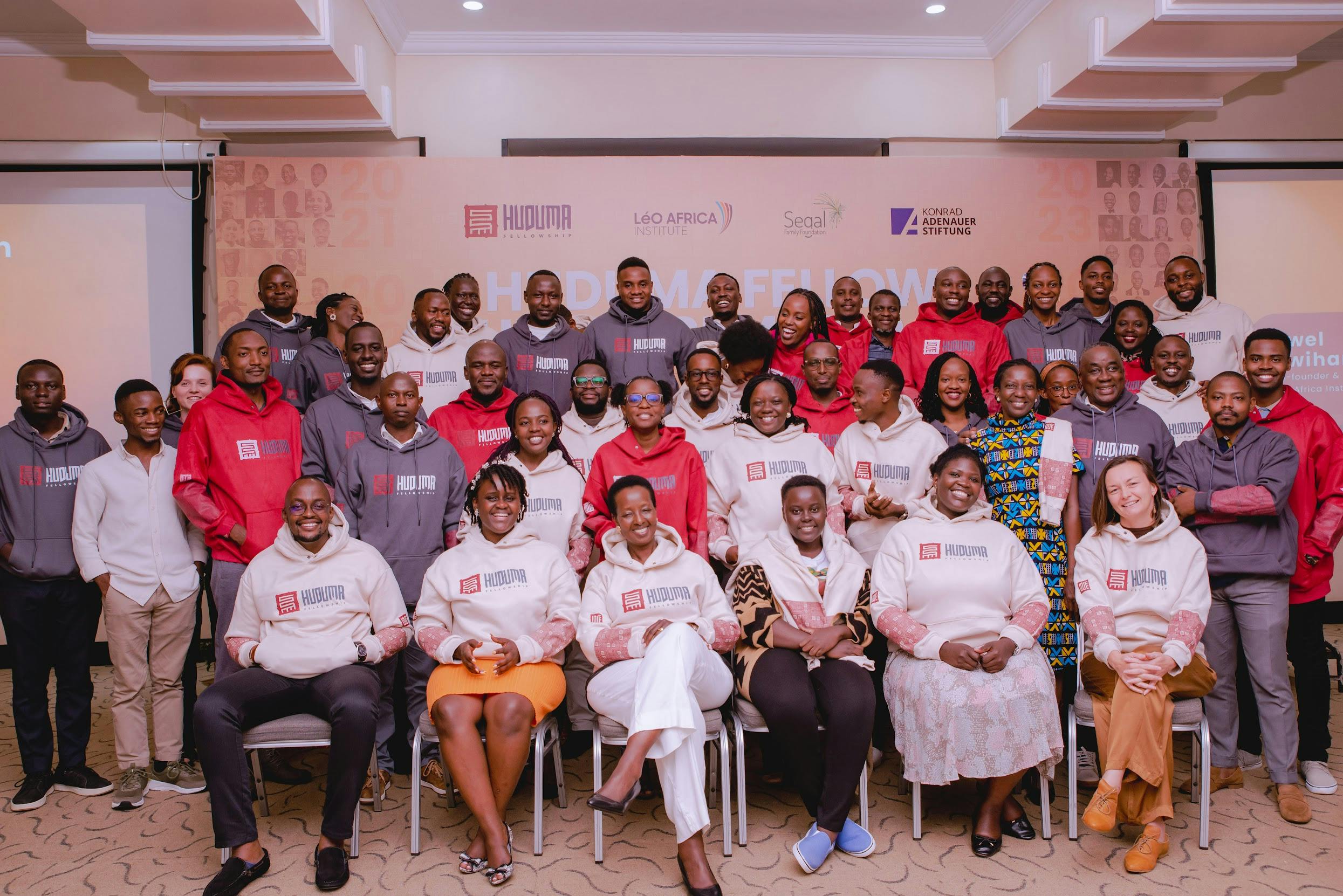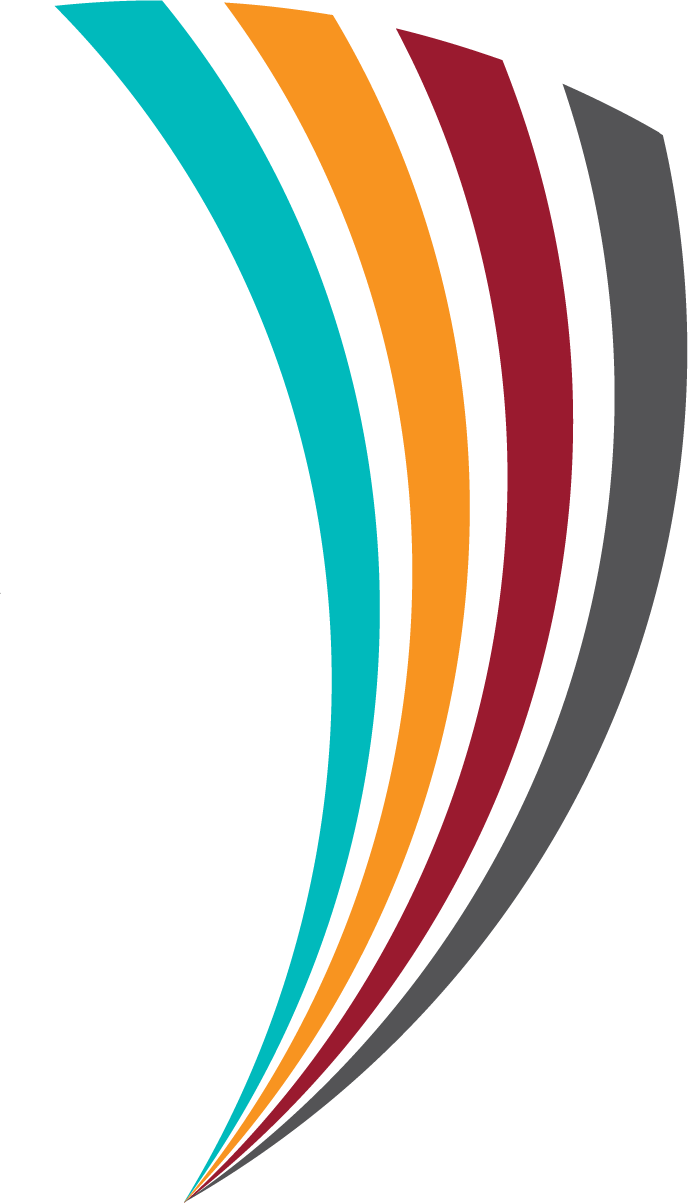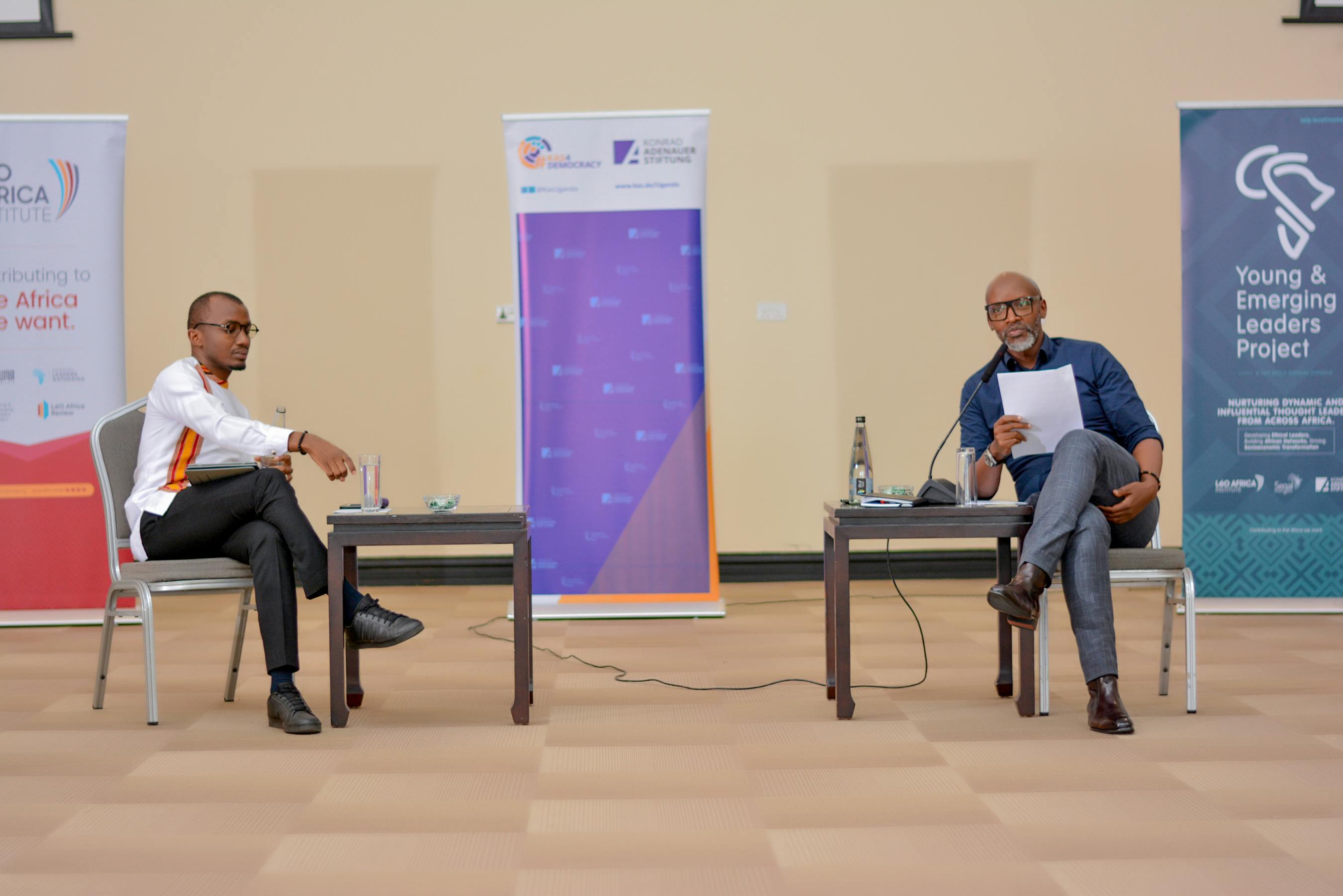Since 2021, in the heart of Uganda's civic landscape, the LéO Africa Institute and Konrad Adenauer Stiftung have been building a community of civic champions who exemplify values of service and community building. The Huduma Fellowship—its name derived from the Swahili word for "service"—stands as a beacon for young professionals seeking to redefine leadership in public service.
"When I first received my acceptance letter, I thought this would be another professional development program to add to my resume," confesses Dinah Achola, a 2021 fellow, as she addresses the room of attentive faces. "What I didn't realize was that I was stepping into a journey that would fundamentally transform how I view my role in society."
The reunion seminar brought together fellows from different cohorts, all bound by a shared experience: the challenging yet rewarding transition from pursuing personal success to creating meaningful societal impact.
The Reality Check
Chark Benson Muhumuza, a tax administrator and trade specialist from the 2022 cohort, leans forward in his chair, his expression earnest as he shares his experience.
"When joining public service, you always feel excited about driving impactful change," he begins, his voice carrying the weight of experience. "But when you're finally in office, you get a reality check. Your priorities as an individual might be secondary to your colleagues in the government bureaucracy. And that contradiction can frustrate your efficiency."
Heads nod in agreement across the room—a silent acknowledgment of the bureaucratic hurdles that often stand between vision and execution in public service.
Yet Chark's message carries hope: "Do not ever tire of doing good in any public office you occupy. Impact comes from the unending struggle to work through the mess in the system."
Beyond the Boundaries of Privilege
The fellowship, a collaborative initiative between the LéO Africa Institute and Konrad Adenauer Stiftung, focuses on equipping 25- to 35-year-old professionals with the skills needed to embody servant leadership and drive transformative change.
Owilla Abiro Mercy's words resonate through the hall as she reflects on her experience: "Being part of the Huduma fellowship made me realize that everyone has a contribution to make to society. It is also important to observe your society beyond the boundaries of your privilege."
Her statement captures the essence of what the Huduma Fellowship strives to instil—a perspective that extends beyond individual achievement to collective wellbeing.
Becoming the Face of Ethical Leadership
Uganda's Deputy National Coordinator for Prevention of Trafficking in Persons, Agnes Igoye, who serves as faculty at the Institute, addresses the fellows with conviction. Her challenge to them is clear: become the face of public service leadership by exhibiting ethics and values in their leadership roles.
This call to ethical leadership comes at a critical time when public service in many African nations faces challenges of trust and efficacy. The Huduma fellows represent a new generation of leaders committed to changing this narrative through principle-centered leadership.
Networks That Amplify Impact
As the day progresses, the value of connection becomes increasingly evident. Fellows from diverse professional backgrounds—engineering, policy-making, banking, education—share how their interconnected network has amplified their individual efforts.

"What makes the Huduma network unique," explains one fellow during a breakout session, "is that we've created a multidisciplinary approach to problem-solving. When I face a challenge in my education initiative, I can call on fellows in technology or policy to provide insights I wouldn't have considered."
This diversity creates a framework for public service that fosters innovative and participatory solutions to Uganda's most pressing challenges.
The Twists and Turns of Service
The Huduma Fellowship's Nkyinkyim logo, symbolizing life's twists and turns, serves as a fitting metaphor for the fellows' journeys. Each fellow's path requires initiative and responsiveness to navigate the complexities of public service while maintaining their vision for change.
For many fellows, this has meant reconciling career ambitions with community needs, often requiring personal sacrifices. Dinah Achola speaks of the delicate balancing act between her professional demands and her commitment to a community project—a fellowship requirement that ensures impact extends beyond the program.
Building the Africa We Want
As the reunion draws to a close, the air is charged with renewed commitment. The fellows—now champions of public service—prepare to return to their respective roles with refreshed purpose and strengthened resolve.
The Huduma Fellowship stands as proof that leadership in its purest form means translating personal success into lasting significance. Through intensive training in strategic thinking, adaptability, and ethical leadership, these fellows are tirelessly building the Africa they envision—one where public service is approached as a calling rather than merely a career.
In the fading light of evening, as fellows exchange final words of encouragement and farewell embraces, one thing becomes clear: the journey from success to significance continues beyond this reunion. And through the collective efforts of these dedicated public servants, Uganda's future grows brighter with each passing day.
The Huduma Public Service Champions Reunion 2025 was a powerful reminder that true leadership lies not in titles or accolades, but in the continuous struggle to create meaningful change in society




